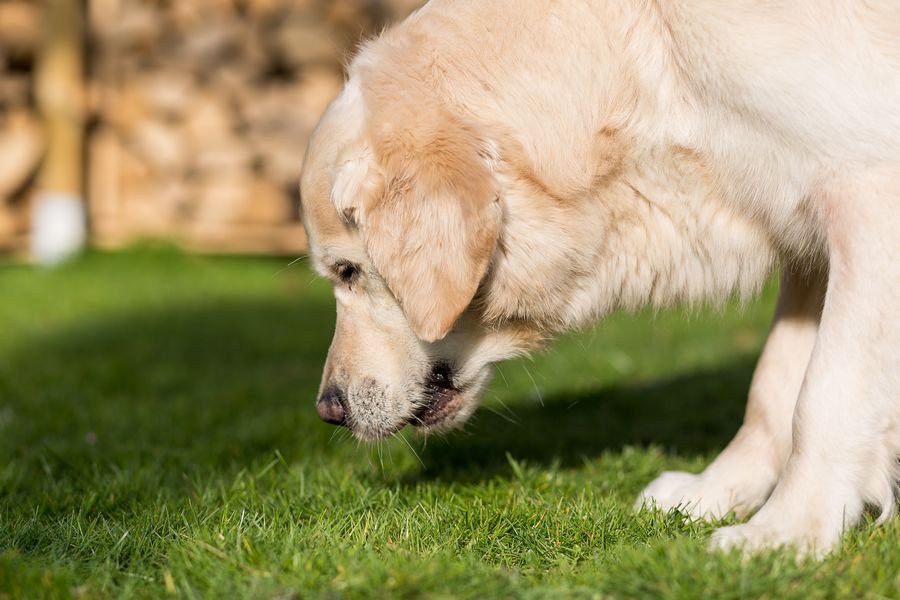My dog is vomiting bile
Gastroenteric disorders are the first reason for veterinary consultation. Seeing a dog vomit bile is not unusual, but this symptom should not be neglected.
There are many diseases and metabolic dysfunctions that can cause this phenomenon, ranging from simple gastritis to more serious health problems, such as kidney failure. To determine what your dog is suffering from and whether or not a visit to the veterinarian is urgently needed, here is everything you need to know about bilious vomiting, its causes and its consequences.
What is bile vomiting in dogs?
Vomiting is an action in which the contents of the stomach are forcibly expelled, following nausea and more or less intense contractions. In this, vomiting is different from regurgitation, during which food - often little or not digested - is rejected by the animal without effort, as if it were simply spitting it out.
Bile is a digestive juice produced by the liver, part of which is sent directly to the duodenum to digest the food, while the other part is stored in the gallbladder. Bile vomit is easily recognized by its yellow or even greenish color and its liquid appearance. Note that when bile mixes with gastric juices produced by the stomach, it can be frothy and relatively thick.
Since bile is naturally produced by the dog's body, it is quite normal to find it in his vomit. This substance triggers lipase, and is used to specifically digest fats. When a dog vomits bile, it is called bilious or, more rarely, biliary vomiting. However, bile vomiting is not a disease, but a symptom of another disorder.
Therefore, determining the nature of the primary disorder is essential to the proper treatment and prognosis of a dog vomiting bile.

Main causes of bilious vomiting in dogs
Some dogs suffer from a condition called Bilious Vomiting Syndrome, which results in chronic gastritis (inflammation of the stomach) caused by the animal's own bile. It is a condition that is still not well understood, and is thought to be caused by an excessive production of bile that weakens the mucous membrane of the stomach.
Dogs affected by this disorder typically vomit in the morning before their first meal, when their stomach has remained empty for too long. The absence of food promotes an increase in acidity that inflames the stomach lining, resulting in vomiting. The dog has no food in its stomach, so it vomits its bile.
Reducing the time between meals is usually an effective way to solve this problem. Other pathologies can cause gastritis, acute or chronic, which results in bilious vomiting. This is the case with intestinal worms, certain viruses, bacteria or metabolic dysfunctions.
Kidney failure, hyperthyroidism, pancreatitis, hepatitis... The list of metabolic disorders that can cause digestive disorders is long, and only a veterinarian can pinpoint the failing organ that is causing your dog's problems. We haven't mentioned it yet, but it's the first suspect in a case of vomiting - bilious or not - in dogs: the diet.
There are two ways in which poor quality food can cause vomiting. The first, less serious, is due to irritation of the animal's stomach, caused by ingredients that are not easily digestible or allergenic, of which industrial food is full. The second, more insidious, is due to the impact of a bad diet on your dog's metabolism.
We have talked about kidney failure, pancreatitis and other metabolic diseases... It is important to note that the dysfunctions of these organs are favored by a bad food hygiene. Stress is also a factor not to be neglected, capable of causing - among other things - bilious vomiting in dogs.
Finally, bilious vomiting can occur in dogs that have been poisoned, although the release of bile is not typical of this type of disorder. The absorption of a toxic product that has irritated the mucous membranes of the dog's stomach can, however, cause a more or less severe gastritis, sometimes lasting several days.
Consequences of bilious vomiting in dogs
Bilious vomiting itself does not really have any health consequences for your dog, although it may cause some discomfort or even severe pain. However, you should be concerned about the health consequences of the cause of the vomiting.
If the gastritis is caused by poor quality food, the dog's entire body may eventually suffer. In addition, regular untreated vomiting can create an inflammatory environment that can lead to the development of other diseases, including cancer.
When your dog's gastritis is caused by metabolic disorders, your dog's health is at risk if it does not receive proper care. Untreated renal failure is not forgivable, and the same is true for hepatitis, pancreatitis and other conditions that affect essential body functions.
While it should be noted that some of these metabolic disorders will not be cured (such as renal failure), we should not give up: palliative care can give dogs many more years of life in good conditions. In addition, other conditions, such as acute pancreatitis, can be completely treatable, with a full recovery.
Finally, it is difficult to predict the consequences of poisoning causing bilious vomiting in dogs. In general, animals that are quickly treated for poisoning have a good chance of survival, although this depends on the toxin involved.
However, it is quite rare for a dog to come down with a devastating poison that causes bilious vomiting: fatal toxins often cause more serious symptoms, such as nervous disorders and hemorrhagic vomiting.

What to do if my dog vomits bile?
The question most owners ask themselves when their dog vomits bile is: veterinarian or not veterinarian? The answer to this question depends on the severity of the symptoms as well as the general condition of the dog and its profile.
Regarding the dog's profile, puppies, older dogs and fragile or sick dogs, individuals whose condition may deteriorate rapidly, will tend to be taken to the veterinarian quickly. Vomiting alone can jeopardize the health of a fragile dog by causing dehydration that can lead to long-lasting after-effects and even death.
The cause of the vomiting, depending on its nature, is always likely to degenerate more quickly and cause more virulent reactions in the most fragile dogs. Regarding the severity of the symptoms, it is preferable to take your dog to the veterinarian in an emergency when the vomiting is strong, "in spurts", repeated several times in one day, spread over several days or occurring chronically.
It is also important to carefully observe the bile that your dog vomits: any trace of blood or fecal odor should alarm you and push you to rush to the veterinarian without delay. Other digestive symptoms associated with vomiting (diarrhea, constipation) are not to be taken lightly, but are not indicative of an emergency: it is quite common for a benign digestive condition to cause multiple symptoms. Again, the severity of these symptoms must be assessed.
On the other hand, non-digestive symptoms (tremors, fevers, coughing, fatigue, depression, etc.) associated with bilious vomiting are more worrisome and should lead you to a veterinarian. If your dog is an adult in the prime of life and in perfect health, and has emitted only one or two small bilious vomits and shows no other symptoms, it is possible to wait 24 to 48 hours before taking him to a veterinarian, in order to see if the situation doesn't get better on its own.
It is sometimes advised to rest the stomach of a dog that has just vomited, but this does not apply in the case of bilious vomit: the absence of food in his stomach may be the cause of the problem, it is rather recommended to give him very digestible food in small quantities. A well-cooked chicken breast with a little rice will do the trick, and your pet should always have clean water available.
Let your dog rest, and avoid games and activities for 24 to 48 hours. If the vomiting doesn't go away and your dog hasn't recovered at this point, a visit to the vet is a must.
FAQ
My dog is vomiting bile, what should I do?
The best thing to do with a sick dog is always to take him to a veterinarian. However, if your dog is a healthy adult and has no other symptoms, you can give him some very digestible food and wait 24 to 48 hours before becoming alarmed. If the symptoms persist after this time, it is necessary to consult a veterinarian.
Why does my dog vomit bile?
How to treat a dog vomiting bile?
The appropriate treatment for a dog vomiting bile depends on the disorder causing the vomiting. In most cases, bile vomiting is due to poor nutrition or parasites (intestinal worms). As a first step, you should therefore make sure that your dog has been dewormed according to the veterinarian's schedule and that he is eating a quality food.A dog vomits bile when his stomach is irritated and empty, so he has nothing to vomit but the digestive juices produced by his body. Many viral, bacterial and dietary causes can cause stomach irritation, as can stress and metabolic disorders.
Can my dog vomit bile because of his kibble?
Industrial kibbles are the ideal culprits when a dog has digestive disorders. Although they are not always the cause, they are still the number one reason for vomiting in dogs.
Bilious vomiting in dogs is not an uncommon condition, but it does deserve to be treated to prevent your dog from suffering unnecessarily and from long-term health problems. Younger, older or fragile animals are most at risk, and their vomiting may be related to digestive or non-digestive pathologies that can deteriorate if not treated in time.

